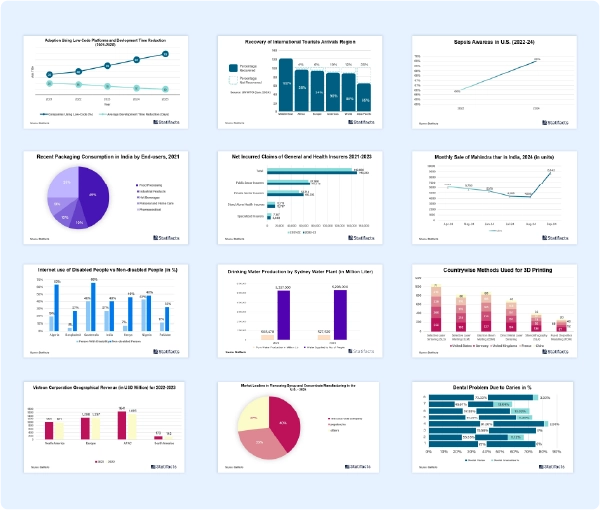The U.S. biotechnology and pharmaceutical services outsourcing market size surpassed USD 10,840 million in 2024 and is predicted to reach around USD 17,760 million by 2034, registering a CAGR of 5.06% from 2024 to 2034.
U.S. Biotechnology and Pharmaceutical Services Outsourcing Market Report Highlights
- By Service, The consulting services segment accounted for the highest market share in 2024.
- By Service, The regulatory affairs segment is anticipated to grow during the forecast period.
- By End-use, the pharmaceutical companies segment dominated the market with the largest share in 2024.
- By End-use, the biotechnology companies segment is predicted to grow at a rapid pace during the forecast period.
The U.S. biotechnology and pharmaceuticals services outsourcing market is expanding rapidly as pharmaceutical and biotech industries depend more on suppliers for essential services. Drug development and research, contract manufacturing, clinical research, supply chain management, regulatory compliance, and pharmacovigilance are some of these outsourced services. Contract Research Organizations (CROs) and Contract Manufacturing Organizations (CMOs) are essential for reducing operation costs and speeding up the development of new drugs. The market is growing due to rising R&D costs, stricter regulations, and development in AI-driven medication discovery.
The increasing costs associated with drug development and clinical trials are one of the key drivers that is pushing the expansion of the market. It might require up to 10 years and might cost billions of dollars in order to bring a new medication to the market as it involves plenty of research, numerous clinical trial stages, and regulatory clearances. Pharmaceutical and biotech industries are turning more frequently to specialist suppliers for critical services, which include pre-clinical research, clinical trials, contract manufacturing, and regulatory affairs, in an effort to minimize these costs. Furthermore, outsourcing enables businesses to take advantage of the expertise of outside suppliers while concentrating on essential skills like invention and medicine development. The need for outsourcing services is predicted to grow as R&D expenses keep rising and regulatory requirements get more complicated, which will boost market development.
The growing regulatory complexity in drug research and approval is another significant reason for the expansion of the market. Both pharmaceutical and biotech firms find it difficult and resource-intensive to comply with stringent standards set by EMA, FDA, and other international regulatory agencies on clinical trials, drug safety, and manufacturing procedures. Due to this, many businesses contract with specialized organizations that have expertise in negotiating complicated rules to manage regulatory affairs, pharmacovigilance, and compliance consulting services. Clinical trial application preparation, post-market surveillance management, and GMP compliance are all aided by Contract Research Organizations (CROs) and regulatory service providers. These tasks can be delegated to lower risks, expedite approval procedures, and guarantee adherence to changing requirements. Industries are expected to rely more on outsourcing partners due to stricter regulatory frameworks, which can support more industry development.
The need for specialized contract research and manufacturing services is being fueled by the growing number of biotech companies as well as a robust pipeline of gene treatments, personalized medicine, and biologics. Several smaller biotech companies outsource preclinical research, manufacturing, and clinical trials as they lack the internal resources and
knowledge required for drug development, which is a growth factor for the market. Similarly, many pharmaceutical companies are undertaking multi-regional clinical trials due to the increased requirement for different patient groups and cost-effective trial execution. Outsourcing is an essential tactic due to the difficulties the globalization brings with regard to patient recruitment, regulatory compliance, and logistics. The need for outsourcing services continues to grow along with the need for international trials.
Drug research, regulatory compliance, and clinical trials are all being transformed with AI, which is a key factor driving growth for the market. By evaluating enormous biological datasets, AI-powered algorithms find potential drug candidates more quickly than conventional techniques, speeding up the drug development process. Machine learning systems enhance data analysis, trial design, and patient recruitment in clinical trials, increasing efficiency and cutting expenses. Real-time adverse event detection is another way in which AI-driven pharmacovigilance systems improve the safety of medicines. AI also expedites FDA approvals by streamlining regulatory compliance and documentation, which lowers errors made by humans. AI is being incorporated by Contract Research Organizations (CROs) and Contract Manufacturing Organizations (CMOs) to improve analytics for prediction, process automation, and customized pharmaceutical solutions. Outsourcing businesses may provide more rapid and affordable services through the use of AI, which increases their appeal to pharmaceutical and biotech enterprises. The need for outsourcing solutions prompted by AI is anticipated to grow dramatically as technology progresses further.
One major factor driving outsourcing is the increasing need for gene treatments, biologics, and biosimilars. Biologics are more complex than traditional small-molecule medications, necessitating sophisticated bioprocessing techniques, specialized manufacturing facilities, and stringent regulatory compliance. The significance of monoclonal antibodies (mAbs), cell and gene therapies (CGTs), and RNA-based treatments (mRNA, siRNA, etc.) continues to grow, and their development and large-scale manufacturing need for skilled CROs and CMOs. Similarly, pharmaceutical firms are looking to incorporate real-time patient data into clinical research and treatment strategies, given the growth of telemedicine, digital health platforms, and mobile devices, which will boost the market in upcoming years.

